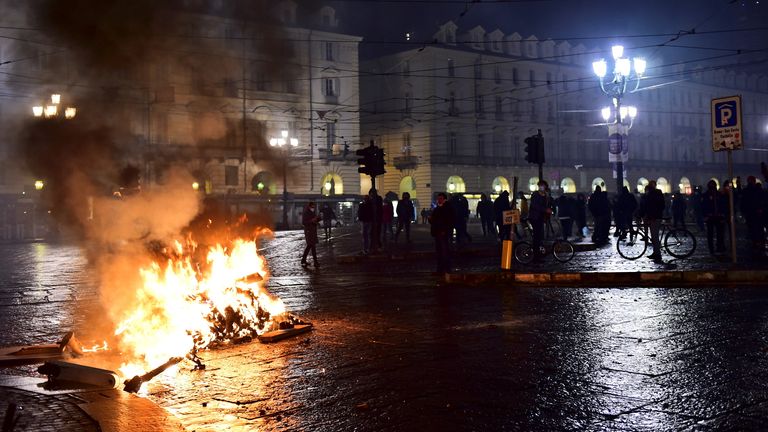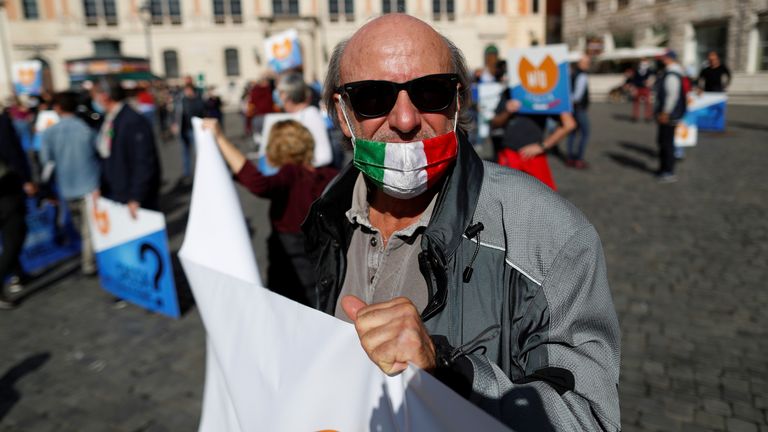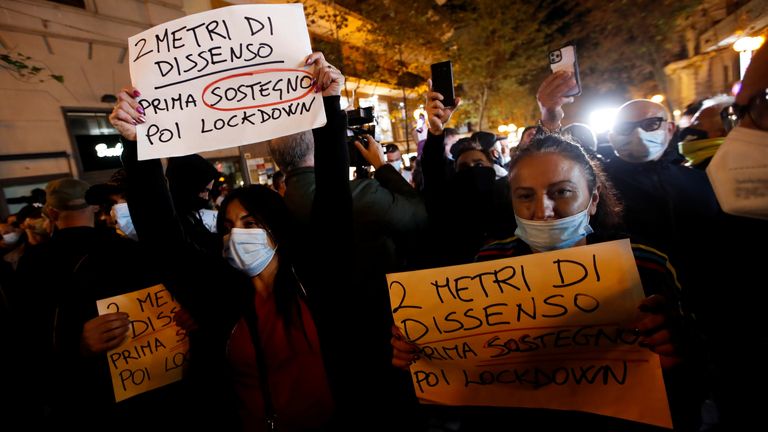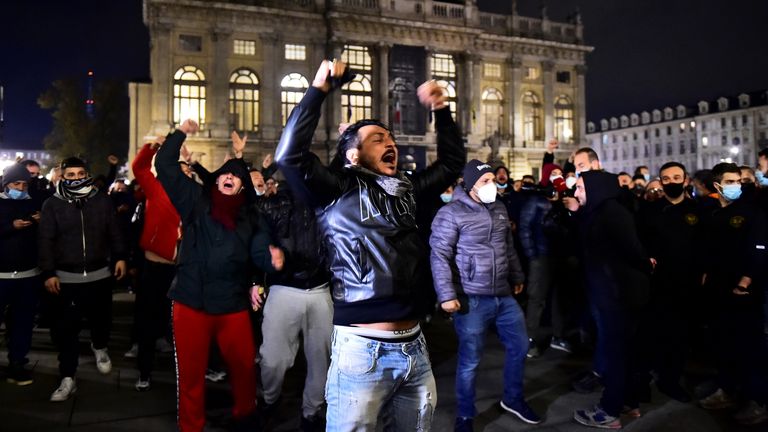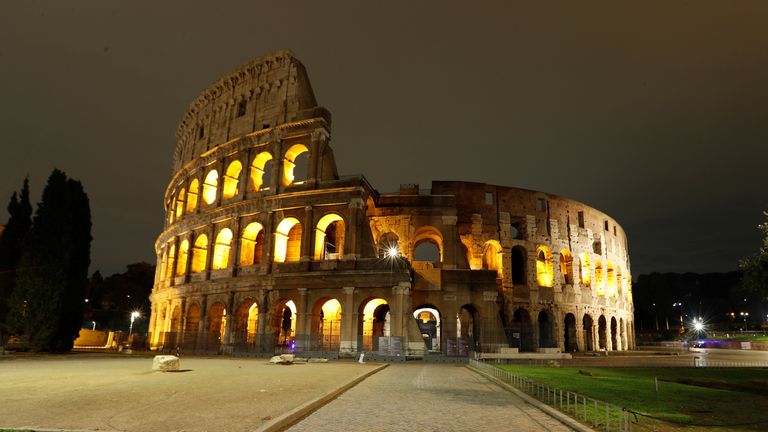Italy's government is facing a backlash against the latest measures put in place to tackle COVID-19.
In the last 24 hours, thousands of protestors turned out in Italian cities and towns to object to the order for bars and restaurants to shut their doors at 6pm for the next 30 days.
The government wants to try to limit social interaction and contain coronavirus.
Live coronavirus updates from the UK and around the world
In the northern city of Turin, some demonstrators broke off from a peaceful protest, throwing bottles at police and lighting smoke bombs. Police fired tear gas and used water cannons to disperse people.
The protests reflect growing frustration in Italy which is still reeling economically from the impact of the first wave of COVID-19.
The country was the first western nation to be heavily affected by the virus. The government and population were praised by the World Health Organization for their reaction which helped turn the trajectory of the virus.
A rigorous testing and monitoring system are amongst the measures which worked.
According to Johns Hopkins University, there have been 542,789 confirmed cases in the country and 37,479 deaths.
But like elsewhere across Europe, Italy's COVID numbers are rising again and hospitals in Rome are struggling. Long queues of ambulances have been seen outside hospitals in the city for days and ICU units are full or close to capacity.
Along with closing bars early, the government has shut gyms, cinemas, and swimming pools.
Italy has also introduced its own rule of six as part of the measures which came into force on Monday 19 October and are currently scheduled to last until 13 November.
A number of regions, including Lombardy and Piedmont, have also imposed nighttime curfews.
Many small businesses, who were just getting back on their feet, say the new measures could bankrupt them.
Whilst Italians largely complied with restrictions in the spring there is now a real pushback against the latest measures.
Looking to calm tensions the government is due to announce new plans today to support businesses. But there is unlikely to be enough on offer to appease all.
People in Italy are frustrated and whilst protecting lives has to be a priority, the need to protect livelihoods is to a large extent driving the public mood.


